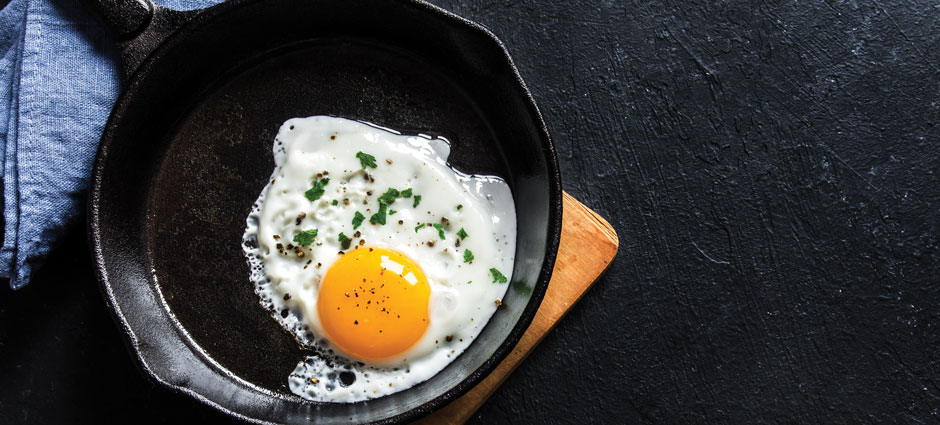It’s one of the “newest” required nutrients: In 1998, the National Academy of Medicine (then called the Institute of Medicine) designated choline as an essential nutrient. It’s called “essential” because even though the body manufactures some choline, most people need to get it from foods to stay healthy. According to the National Health and Nutrition Examination Survey (NHANES), 90 percent of U.S. children, adults and pregnant women are not getting enough choline.
Related to the B vitamins, such as folate and B12, choline plays many vital roles in the body. Notably, it is needed to synthesize acetylcholine, a key neurotransmitter, along with lecithin, which maintains cell membranes. Other functions include: transmitting nerve impulses, processing fat and cholesterol, and maintaining healthy blood levels of homocysteine—an amino acid that, when present in high concentrations, has been linked to an increased risk of heart attacks and strokes.
Choline is also important in fetal brain and memory development; thus, a higher amount is crucial for pregnant and lactating women. Data from a recent Cornell University study, published in The FASEB Journal, indicated that higher choline doses during pregnancy may boost infant brain function.
Because of choline’s wide-ranging roles in human metabolism, choline deficiency is now thought to influence diseases such as liver disease, atherosclerosis and possibly neurological disorders, according to a report published in Nutrition Reviews.
How Much Do You Need?
A varied diet should supply enough choline for most people, although strict vegetarians, vegans and older people tend to get less. The daily recommended adequate intake (AI) for choline per the National Academy of Medicine is:
Women: 425 mg
Pregnant women: 450 mg
Lactating women: 550 mg
Men: 550 mg
Where Do You Find It?
Choline can be found naturally in foods, particularly eggs, meat, poultry and fish. If you choose to take a choline supplement, a clinical review determined that CDP-choline, also called citicoline, is the highest quality. See chart below.
|
FOOD SOURCES OF CHOLINE |
|
|
Beef liver, cooked, 3.5 ounces |
420 mg |
|
Egg, large |
147 mg |
|
Salmon, Atlantic, raw, 3.5 ounces |
79 mg |
|
Quinoa, |
70 mg |
|
Chicken breast, cooked, 3.5 ounces |
62 mg |
|
Edamame, ½ cup |
56 mg |
|
Brussels sprouts, cooked, ½ cup |
41 mg |
|
Cauliflower, cooked, ½ cup |
39 mg |
|
Peanut butter, |
33 mg |
|
Tofu, 3.5 ounces |
28 mg |

